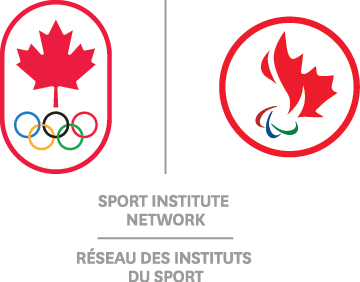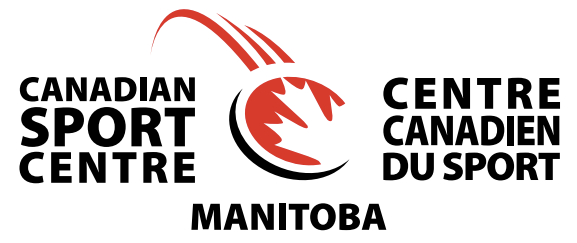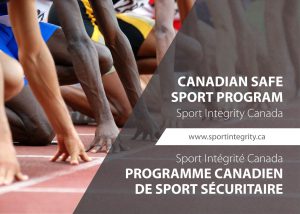Week 2: Sport Psychology
Sport psychologists working in Euro-Canadian sport settings are encouraged to review their approaches critically, asking themselves whether their practices unintentionally marginalize athletes from diverse cultural backgrounds. Incorporating cultural resources from the athlete’s culture can broaden the reach of sport psychology programs (Schinke, Peltier, et al., 2013).
Below are several things to consider in your work with athletes from diverse backgrounds.
“… sport psychologists should adopt a multicultural worldview and approach individual athletes using a multicultural framework that avoids sensitive stereotyping [sic]” (Kontos & Breland-Noble, 2002, p. 311).
While some athletes from diverse cultures may adopt some aspects (e.g., mental toughness) of their new sport culture to attain success, this adoption can also have a negative impact on an athlete’s mental health and physical well-being (Tibbert et al., 2015).
Immigrant college students facing significant familial stress related to settling in a new country may experience an increased impact of hopelessness on suicidal ideation (Lane & Miranda, 2018).
When trying to create culturally safe environments, we must think of the ways our interactions with others may be influenced by our own cultural backgrounds and attitudes, we must remain cognizant of the significant diversity that exists within cultures (e.g., gender, age, religion, socioeconomic status), and we must avoid actions that are based on generalizations as opposed to information about the specific, unique individuals with whom we are working (Ramsden, 1999).
As a sport psychologist, it is important to be cognizant of the challenges your athletes are facing outside sport, as these can affect not only performance, but wellbeing. Newcomer athletes are often challenged in a multitude of ways when settling into new host cultures. Language barriers, hurtful jokes from culturally insensitive peers, and struggling to find a sense of belonging are just a few of many examples (Schinke et al., 2016).
Below are a few examples from an Olympic athlete on the challenges she faced trying to incorporate her culture into her role as a high-performance athlete.
“… if you would have asked me as a National athlete what do you need to succeed? … Physiotherapy, massage, sports psychology and a sport psychologist that will understand you, coming from that community, coming from your reality. I would love to meet an Aboriginal sports psychologist, that would be my dream…” – Waneek Horn-Miller, Mohawk Olympian from Kahnawake Mohawk Territory (Busch et al., 2003, p. 111).
“I remember being sent to so many sports psychologists. And they’re sitting there, getting you to visualize that you’re in your house, and telling you to put that stress in the closet, and I am just going ‘AAAARGH!’ … I’m just sitting there, saying like, ‘You don’t get it! You know, you really don’t get it!’ And, to be a successful athlete I had to make my sport almost spiritual. I had to go back to my spiritual, ceremonial background. And I found my sport psychology within my cultural ceremonies.” – Waneek Horn-Miller, Mohawk Olympian from Kahnawake Mohawk Territory (Forsyth & Paraschak, 2006, p. 33).
We are hopeful this provided you with several thoughts to consider in working with athletes from diverse cultures and backgrounds. Below are several resources if you wish to continue to explore this topic.
References
Busch, A., Brant, R., Forsyth, J., Horn-Miller, W., Loutitt, J., Sinclair, C., Smith, M., & Wood, C. (2003). Sport
leadership panel. North American Indigenous Games Research Symposium proceedings (pp. 99-123). University of Manitoba. https://img1.wsimg.com/blobby/go/a077afdf-9ae2-4881-a70f-8241f1d3eba7/downloads/2002%20NAIG%20Proceedings%20(2003).pdf?ver=1600445715720
Donohue, B., Strada, M. J., Rosales, R., Taylor-Caldwell, A., Hise, D., Ahman, S., Lefforge, N. L., Kopof, M., Devore,
G., Soares, B., Radkovich, B., & Laino, R. (2006). The semistructured interview for consideration of ethnic culture in therapy scale: Initial psychometric and outcome support. Behaviour Modification, 30(6), 867-891, https://doi-org.uml.idm.oclc.org/10.1177/0145445505276096
Forsyth, J., & Paraschak, V. (2006). Aboriginal Sport Research Symposium November 18-19, 2005: Final
report and proceedings. Aboriginal Sport Circle, Sport Canada. https://umanitoba.ca/faculties/physed/research/media/aboriginal_sport_research_symposium.pdf
Kontos, A. P., & Breland-Noble, A. M. (2002). Racial/Ethnic diversity in applied sport psychology: A multicultural
introduction to working with athletes of color. The Sport Psychologist, 16, 296-315. https://journals-humankinetics-com.uml.idm.oclc.org/doi/pdf/10.1123/tsp.16.3.296
Lane, R., & Miranda, R. (2018). The effects of familial acculturative stress and hopelessness on suicidal ideation
by immigration status among college students. Journal of American College Health, 66(2), 76-86. https://doi.org/10.1080/07448481.2017.1376673
Ramsden, I. (1993). Cultural safety in nursing education in Aotearoa. Nursing Praxis in New Zealand, 8(3), 4-10.
Schinke, R. J., Blodgett, A. T., McGannon, K. R., Ge, Y., Oghene, O., Seanor, M. (2016). Adjusting to the receiving
country outside the sport environment: A composite vignette of Canadian immigrant amateur elite athlete acculturation. Journal of Applied Sport Psychology, 29(3), 270-284. https://doi.org/10.1080/10413200.2016.1243593
Schinke, R. J., Peltier, D., & Yungblut, H. (2013). Canadian elite Aboriginal athletes, their challenges, and the
adaptation process. In J. Forsyth, & A. R. Giles (Eds.), Aboriginal peoples & sport in Canada: Historical foundations and contemporary issues (pp. 124-142). UBC Press.
Tibbert, S. J., Andersen, M. B., & Morris, T. (2015). What a difference a “mentally toughening” year makes: The
acculturation of a rookie. Psychology of Sport and Exercise, 17, 68-78. https://doi.org/10.1016/j.psychsport.2014.10.007


